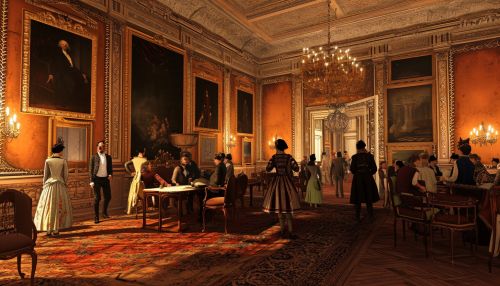Classicism in French Literature
Origins of Classicism in French Literature
Classicism in French literature, a movement that spanned the 17th and 18th centuries, was heavily influenced by the ideals and principles of ancient Greek and Roman cultures. This period, often referred to as the French Classical Age, was characterized by a strong emphasis on order, balance, and harmony in both form and content.


Key Principles of Classicism
Classicism in French literature was governed by several key principles, including reason, clarity, balance, and restraint. These principles were often manifested in the form of strict adherence to established literary forms and conventions, a preference for high, noble subject matter, and a strong emphasis on moral purpose.
Reason
Reason was considered the highest human faculty during the Classical Age. Literature of this period often reflected a rational, logical worldview, with characters and plots that were guided by reason rather than emotion or passion. This principle was closely tied to the Enlightenment ideals of rationality and scientific inquiry, which were gaining prominence during this period.
Clarity
Clarity was another key principle of classicism. This was reflected in the clear, precise, and unambiguous language used in classical French literature. The aim was to communicate ideas and emotions as directly and clearly as possible, without resorting to excessive ornamentation or complexity.
Balance
Balance was a central tenet of classicism, both in terms of form and content. In terms of form, classical French literature often adhered to strict metrical and structural conventions, resulting in a balanced, harmonious composition. In terms of content, there was a balance between reason and emotion, with neither aspect dominating the other.
Restraint
Restraint was another important principle of classicism. This was manifested in a preference for understatement and subtlety over exaggeration and hyperbole. It was also reflected in the moral restraint exhibited by characters in classical French literature, who were often guided by a sense of duty and decorum.
Major Authors and Works
Several authors emerged during the French Classical Age who are considered masters of the classical style. These include Pierre Corneille, Jean Racine, and Molière, among others.
Pierre Corneille
Pierre Corneille, often hailed as the founder of French tragedy, was a key figure in the early years of the Classical Age. His play, "Le Cid," is considered a masterpiece of classical French drama. Despite initial controversy over its adherence to classical conventions, "Le Cid" was ultimately embraced for its powerful depiction of honor and duty.
Jean Racine
Jean Racine, another major figure of the Classical Age, was known for his tragedies that explored the human condition. His works, such as "Phèdre" and "Andromaque," are renowned for their psychological depth and poetic beauty.
Molière
Molière, the pen name of Jean-Baptiste Poquelin, was a playwright and actor who is considered one of the greatest masters of comedy in Western literature. His plays, such as "Tartuffe" and "The Misanthrope," are celebrated for their wit, satire, and insightful social commentary.
Impact and Legacy
The impact of classicism on French literature and culture cannot be overstated. The principles of reason, clarity, balance, and restraint have continued to influence French literary and artistic production to this day. Moreover, the works of Corneille, Racine, and Molière have become canonical texts, studied and performed around the world.
